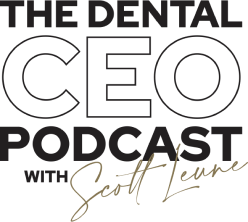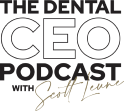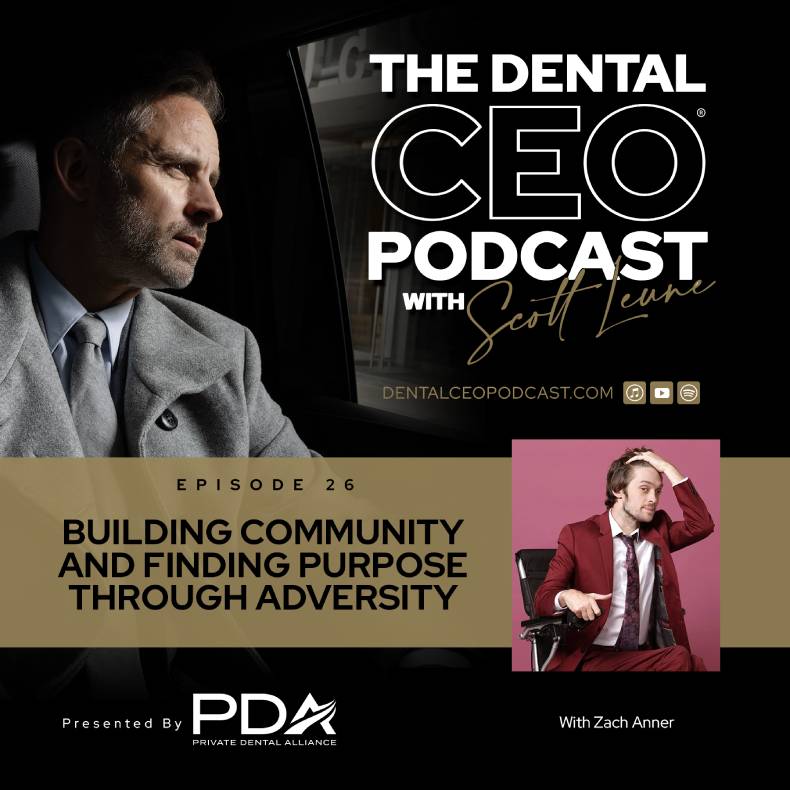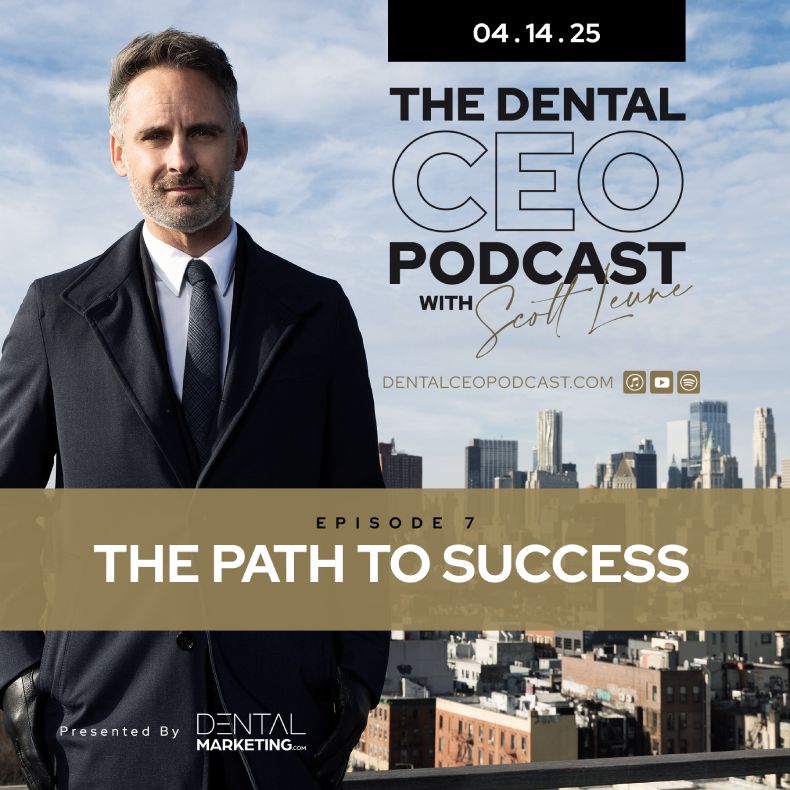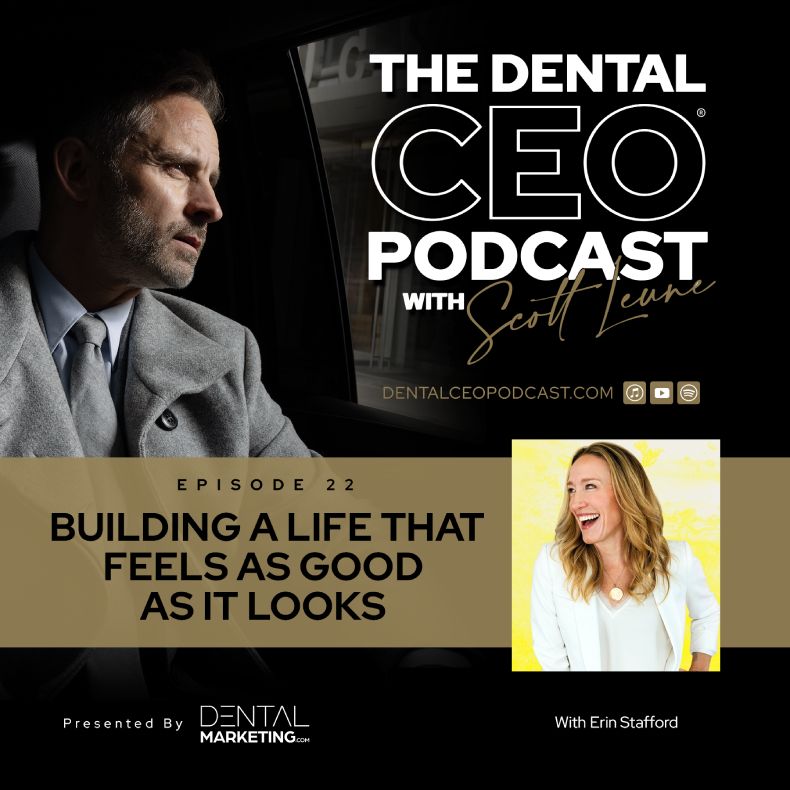Dental CEO Podcast #3 – Why This Is the Golden Age of Building a Dental Startup
In this compelling episode of the Dental CEO Podcast, host Scott Leune delves into the transformative landscape of dental startups in the post-COVID era. Discover why now is considered the golden age for building and owning dental practices, as Scott shares insights on the unprecedented opportunities available today. From securing favorable loans and prime locations to leveraging advanced marketing strategies and cutting-edge technology, learn how to create a thriving dental startup that aligns with your passion and vision. Whether you’re a seasoned dentist or just starting out, this episode offers invaluable guidance on achieving financial success, delivering high-quality care, and igniting your professional passion. Tune in to explore the future of dental entrepreneurship and take the first step towards building your dream practice.
Highlights
- Introduction to the Golden Age of Dental Startups – Scott introduces the concept that we are currently in the “golden age” for dental startups with easier marketing, better landlord deals, advancements in dentistry, and lower equipment costs
- Key Components of Successful Dental Startups – Discussion on the essential elements for a successful dental startup, including securing loans, choosing the right location, and effective marketing strategies
- Current State of Patient Flow and Marketing – Exploration of modern marketing techniques and patient flow management, emphasizing the role of technology and social media in attracting and retaining patients.
- Evolution of Diagnosis and Treatment Options – Analysis of current trends in diagnosis and case acceptance, including the impact of new technologies and procedures on dental practices.
- Case Acceptance in Modern Practices – Explains how new technology (AI software, 3D imaging, smile simulation) drives higher case acceptance
- Financing and Capitalization for Startups – Details how banks are offering larger loans than ever before
- Space Planning and Budget Management – Scott warns against following supply companies’ recommendations that lead to budget overruns
- Location Selection Science – Discuss the importance of population density within specific drive-time radii
- The Passion Factor in Practice Ownership – contrasts working for someone else’s vision (stress) versus your own vision (passion)
Speakers
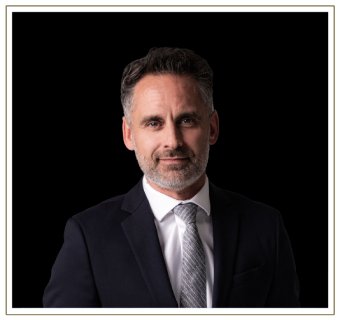
Dr. Scott Leune
Scott Leune, known as The Dental CEO, is one of the most respected voices in dental practice management. From his seminar room alone, he has helped launch over 2,000 dental startups and supported more than 20,000 dentists across practices worldwide. Named one of the 30 Most Influential People in Dentistry, Leune delivers practical, no-fluff strategies that empower dentists to lead with confidence, scale efficiently, and achieve real personal and financial success.
Watch Episode
Read Full Transcript
Scott Leune: Welcome to the next episode of the Dental CEO podcast. My name is Scott Leune and today we are going to be talking about the golden age of building and owning dental startups. I'll tell you what, it's not right now. It's not the pre COVID days where SEO was insanely important, where we have to do a bunch of marketing where we're having to take every insurance sun where we're competing head to head with DSOs and it's hard to find locations where we don't have the data to understand exactly where to put a practice where it's difficult to get a good deal with a landlord. Lemme tell you what it is today in this golden age, in the post COVID world, we have much more effectiveness on the marketing front without spending so much money, so that means we can bring in more patients more easily. We have a situation where landlords are giving dentists incredible deals so that we can go into class a real estate in a way that we can afford.
We're in a world where advancements in dentistry and therefore deeper procedures, more clinically significant procedures that have a bigger financial benefit. Those procedures are becoming commonplace in dentistry, which means we have the power to not have to take every insurance under the sun. We have the power to have decent fees, good fees, appropriate fees that reflect the quality of our work and the quality of our practice. We're also in an age now where no longer do we have to spend 55 or $60,000 in operatory on equipment, but we could actually equip brand new practices with brand new equipment in an all digital environment as well, and we can be under $20,000 op. What does this mean? This means that in the golden age of doing a startup, it's never been so easy to bring in new patients. It's never been so easy to get production up and it's never been so easy to find ideal locations and build them out with less money. In this episode, we're going to be diving into the details of those different topics, and by the end of this episode, I hope that you understand the latest environment and what it takes to build a beautiful, profitable startup that will completely change your career. That's what we're going to be talking about today in the dental CEO podcast,
The World of Startups. I know this world all too well, for better or for worse, as many of you may know. My story, I started in dentistry with one startup that was seeing almost 400 new patients per month. That was just one practice. That was five ops. Only four were equipped. My mother-in-law was my receptionist, my wife was my hygienist, and we didn't really know what we were doing right out of school and I went through a bunch of medical issues. I was actually in and out of a wheelchair for over a decade. I couldn't be a dentist anymore, and from that one practice I started out of school. It grew to more practices and I sold those. I built new ones, all startups that grew to more. I sold those. I continued building and selling and building and selling. I also started helping others across the country and in the past 15 years or so of my career, I have likely touched more than a thousand startups.
I've helped actively manage several hundred and of course I've owned a whole lot myself and it's not just touching those and helping those. I've also become a student, almost a scientist of the business side of building a dental startup, which has led me of course to be teaching about startups in our events at Scott Luon education. Our startup and design seminar is one of the most attended seminars of my career, so that leads me to today and I get to stand back and compare where we are today in startups with where we came from, and that's very helpful to really put things into perspective and to know is today the right time to do the startup? What is going well today? What are some of the challenges? And in this introductory episode to startups, I'm hoping that by the end of it you get a much better understanding of where we're actually at with dental startups.
So let's dive in a bit. A startup practice, you can kind of break it up into different categories of things that have to be aligned well, things that have to work. We have to be able to get a loan and that loan will fund not just the building of the startup, but also working capital after we start it. We also have to be able to understand where do we put the location? If we can put a brand new practice in an area that needs a dentist, obviously we're going to have faster growth in the beginning, less risk. We will grow multiple times greater within two or three years than if we're going into location that doesn't need a dentist. So are there locations available and can we get loan money? Then when you think about location, that's kind of a measurement of how much dental demand there is in the area.
Can we capture the demand? Meaning are there good ways to market to pull the demand in as leads into our startup practice and convert those leads into actual patients that show up. So it's taking the demand, pulling 'em in, creating phone calls or creating clicks to schedule. Can we do that? Is that easy or hard today? That's kind of the third area. Can we get the leads in? The fourth area is if we are seeing patients in today's dentistry, is there enough or is there a lot of dentistry we can diagnose so that every patient that walks in needs a decent amount of work on average and therefore we can make it as a business owner? Just like a restaurant, does every customer want a drink with their meal or do they want dessert with their meal? Is there enough to bill in that experience so that the restaurant can do well financially?
In this kind of weird analogy, we have that same thing. Is dentistry changing in a way that benefits us financially? Are people needing more work or bigger work? And then another component of this, another layer of the startup is okay if they need the work, that's one thing, but are they saying yes, that's another. Has technology helped us get case acceptance? You see what I'm actually describing in a way, after we locate the practice and build it, I'm describing what I commonly refer to as the drivers of growth in a dental practice. Where does dentistry come from? Dentistry that lands on our schedule that we do with our two hands. Where does that come from? How do we grow that? It comes from patient flow coming in times what we diagnose. So how much dentistry does that patient flow need times, what they say yes to, how much do they actually schedule?
Patient flow, diagnosis and case acceptance. Those three are equal in importance, equal in financial impact. They're not equal in ease of growth. I'd say diagnosis is much more easily grown than patient flow, for example, but those are the three components. If those components in dentistry are naturally getting better, then it makes the environment even easier to build a dental practice. If more people are seeking a dentist naturally in an area and if they need more work naturally, and if they're naturally saying yes to more dentistry, then it takes a lot less patience in the area to fund us being successful as a startup. Dental practice. Well, here is kind of the latest greatest on what's happening with at least those three areas. Patient flow. Patient flow has remained steady over the last decade, however, the DSOs have slowed down their expansion and growth as interest rates have gone up and as inflation has gone up, these financial pressures on DSOs have caused them to focus a lot more on the existing practices they have instead of just constantly rolling out new startups, that means that the competition for the patient flow has gone down.
Relatively speaking, COVID also caused private dentists to slow down opening startup practices. So we happen to be in this window right now where the number of patients seeing a dentist has remained steady, but the number of new practices coming on board has gone down. Relatively speaking, the startup is getting access to a bigger patient flow than it used to. Patient flow isn't just about new patients, it's actually mostly about retained patients. We have tools today metrics, tracking platforms and automation that enable us in today's practice to have a much higher rate of retention than the practice of a decade ago. The practice 10 years ago, that practice was losing patients merely because it wasn't on top of reappointing. Everyone. Today technology and automation is reappointing more and more people and that means that our practice patient base grows and maintains that growth at a more healthy pace than in the past.
Now, patient flow also has to do with the effectiveness of marketing. In the past, gosh, in the distant past, marketing was being named a dental and being at the top of the Yellow Pages listing and marketing was getting in a really good location so people could see you and maybe marketing was investing a lot of money in direct mail. Those are ineffective marketing angles or marketing strategies compared to what we're able to do today. Although direct mail definitely still works and visibility can still be very important, but when we look at today's marketing environment, we have Google searches and social media searches that scientifically we can have a strategy that gets us at the top of those searches at a much lower cost than doing something like direct mail of the past. We also have this growing kind of swell of effectiveness that's happening on social media. So if we as a startup have a strategy where we can build out a real kind of presence on social media, that gives us almost this free continuous patient flow and there's a science behind that as well. We have the organic following on social media. We have the paid ads on the searches, we also have the paid ads on social media. All of those have a much lower cost per new patient than past startups had available to them when the social media world wasn't what it is today. In addition to that, we've also got more advanced strategies of marketing, such as getting lead magnets to obtain email addresses and phone numbers and put patients into kind of automated communication channels or create funnels so that over time the patient that used to just click and not schedule, now they click and they enter into a conversation with us over the next year and because we hold on to that patient, that potential patient longer, more of them convert.
So to kind of sum this up, this little introductory marketing kind of message, what we have right now is it's lower cost per patient to bring people in with marketing and it's a lot more effective that makes it easier to build a startup. That second driver of growth I talked about was diagnosis and with implants blowing up in demand with ortho, getting easier with the addition of laser therapy, sleep apnea therapy with facial aesthetics procedures with removable ortho appliances and of course advanced training on para surgeries and endodontics and other surgeries. All of these things make it easier and easier for a general dentist to do more procedures and bigger procedures. And if we have a practice that does more procedures and bigger procedures per patient on average, it's so much easier to make that practice successful and profitable. It's easier today than it was a decade ago because every time patients come in, statistically speaking, they need more work than they used to need a decade ago.
And we also have an aging patient population that wasn't as old a decade ago. So the wave or the trend of dental demand is in our favor. We get to ride that wave as a startup and benefit from that. When you think about the third driver of growth, that's diagnosis, excuse me, the third driver of growth is case acceptance. Where are we at today with case acceptance? Well, statistically speaking, we're a little bit flat. If you look at all practices across the country, we're basically flat in case acceptance. We're diagnosing a little bit more. Case acceptance is healthy, the dollars accepted is a tiny bit less and we've kind of had the flat result. However, that's the average practice. The startup practice is not the average practice. The average practice is operating the way it's done things for the last decade. The startup practice is different.
It's using AI software on the x-rays to help educate patients why they need work. It's using 3D imaging scanning. It is also using smile simulation software so that we could take a photo of the patient's face smiling and immediately show them what their face would look like with a perfect smile. It is going through health assessments that go beyond just the mouth. Today's startup practice is utilizing intraoral imaging as well. We're going through a thoughtful choreographed motion to have the patient experience on that first visit result in a lot higher case acceptance. If you're listening to this right now, think about the practice you work at today. Can you, if it were up to you, insert new technology, new perks for the patient, new words said by your team in a beautiful new practice environment and increased case acceptance from where it is today? I bet nearly everyone listening to this would say yes, we're not doing it the perfect way today in the existing practice I'm in.
Well, the beautiful thing about a startup is we get to do it perfect from the beginning, clean from the beginning, ideal from the beginning. Those three components, patient flow, diagnosis, and case acceptance are on an upward trend and resulting in dramatic differences in how well startups do well. Let's back up. The foundational requirements are can we get a loan and can we find a location today, the loan amounts that the banks are giving dentists are the highest they've ever been. I know when I came into practice in 2005, so that was a long time ago, the biggest loan you could really get to build a practice was about $500,000. While we don't need a million dollars today, we're seeing banks give a million dollars. What does that mean? What does that mean to you? Someone thinking about doing a startup, I want to kind of bend your thinking inside and out. We're kind of taught by society that debt is bad. We need to minimize debt, we need to be conservative. And conservative means taking less debt and spending less money. But in the world of entrepreneurship and building a business, the lowest risk we could have is actually having more debt than we need. That's called being well capitalized, having so much money at our disposal that any hiccup that comes our way, any bump in the road, any kind of challenge we have, we've got the safety net of enough money to make it through without compromise. So in the world of building a startup practice, we actually want to be super conservative with spending the money, but we want to aggressively be well capitalized. We want to have a very large loan if we can get approved for it and then be very responsible with how we spend that money.
The results of that is opening a practice that had modest costs but is beautiful, but it's got a huge pile of cash available to support it, to protect it, to take away the risk. And with that pile of cash, we're going to spend money on marketing, we're going to spend money on expanding our team, expanding our practice. As soon as the demand's there, we're going to spend money on what we don't know is going to happen. We're going to be protected from kind of the ups and downs of the initial phase of entrepreneurship and opening a startup practice. We can have more money today as working capital, opening a dental practice than I have ever seen available in dentistry, which means we're more well capitalized today than we've ever been. Also getting a loan. Not everyone gets approved for a huge amount of money, but nearly everyone gets approved for enough and enough means we're opening a practice with a ton of working capital.
Now don't get me wrong, if you go listen to the big supply companies out there, the big distributors out there, you know the names of the companies, I won't. I will be respectful and not list these big three or four companies on this podcast. But if you follow the advice of those companies, if you let them do their free floor plans, if you buy the equipment from those companies as they suggest and recommend, you will blow through your budget. You will be at high risk, you will not have hardly any working capital if you also are not thoughtful about the amount of space that you're using in your design. For example, if you want five ops and you use 2,500 square feet for five ops, you're going to spend a fortune in construction compared to if you had 1700 square feet for five ops. The difference between 2500 1700 square feet is probably $150,000 budget. So in today's startup world, especially because construction costs are a bit high and equipment costs can get way out of hand, if you're not thoughtful about it, we are going to be disciplined and appropriate in managing a budget. So what that practice actually looks like is a modest size facility, but it has all the ops we want and need. It has all the storage we need from the patient standpoint. It's gorgeous, it's beautiful, it's open, it's modern. Same thing from the team members standpoint. It's a wonderful, beautiful place to work. But when you look at the budget, we did not spend too much money. We've got lots of money left over and it was well capitalized with an appropriate size loan. So when you step back from this thing, this practice that's not huge, but it's gorgeous, has enough ops and has a ton of working capital.
Now that practice needs to be in a great location. So what is a great location? A lot of people that aren't students of the startup world, they just have random opinions. They would say a great location is next to a grocery store. A great location has to be in an urban area or a great location has to have a great population to dentist ratio. While there's a little bit of truth in all of those things, potentially those aren't actually the drivers of what is a great location. The biggest driver, which is going to sound very simple, but the biggest driver of a great location is actually the volume of patients that live inside of a very specific drivable radius from that address. So let me explain that a little deeper. Every address, every potential practice address is going to pull from the local community for patients.
And that distance, that pull has actually been measured and proven. If you're in a city that is a smaller distance, you can kind of imagine a smaller circle of your community is going to pick you. If you're in a suburb, it's a little bit larger circle. And if you're in a rural area, it's a huge circle. It could be the whole county could potentially be your patient. Well, let's look at those circles and for now, let's just ignore the fact that they might be smaller, bigger circles. Let's just assume they're the right size for that location. How many people are in that circle is an insanely important number. If I've got 20,000 people in a circle and then there's another circle on the other side of town that has a hundred thousand people in it, the a hundred thousand person circle has five times as many people needing a dentist any given month, five times as many people to advertise to connect with, to refer you other patients.
That is one of the biggest drivers of dental demand for a startup. Is there a high density of people inside of whatever size circle that's supposed to be? And when we look at the data, and by the way, I've spent a fortune, I bet I've spent more than a million dollars in my career building software to scrape the internet, to gather data, to compute and to predict where the ideal locations are across the country. When we look at those results, we see that every single city, major city has a whole lot of opportunity for startups in today's market, nearly every suburb and in the rural areas, it's hit or miss, but it's very easy to measure and see. There's specific types of demographic reports we can pull of those circles that tell us the demand in those areas. And it becomes very, very clear how even in an area that we thought was saturated like Orange County, even in a spot like Orange County, we can clearly see where we need to put a dental practice.
The takeaway message I want you to have just kind of from listening to this podcast is there's opportunity everywhere. I've never seen so much opportunity actually. I've never seen it so easy to find a location. I've never seen it so easy to get a loan of a large size. I've never seen it so easy to market. I've never seen it so easy to diagnose sizable treatment plans and get people to say yes. When we combine all of that, it's explaining why so many startups are hitting home runs. I mean, we've got startups that are surpassing $2 million in collections in year one, and it's not that uncommon. I know that our average startup we've built over my career achieve 2 million in collections by year three. That was the average. That's with one dentist in five ops. That's about a million dollars a year. Take home pay for that owner dentist.
That's been the average over my career. But that average is going up because what we're seeing today is unprecedented growth, unprecedented success. I'm thinking of a dentist right now for example, that opened in Tampa in just a regular shopping center. You look at the outside of the practice and it looks as normal as you would expect a practice to look. Yet they collected a million dollars in their first five months open. They collected 2.3 million by the end of the first year. And when you collect 2.3 million and you're the only dentist, what goes in your pocket after all your expenses, it should be at least a million dollars. And yet those dentists just years before were an associate somewhere probably working for a huge DSO, taking home 150,000, 180,000, maybe over 200,000. And every year they waited to bet on themselves. Every year they waited to start the journey of a startup was a year.
They lost a million dollar take home pay. They could have had it was a year. They weren't as passionate about their career. It was a year they had to work with people they didn't pick. They had to work in a facility. They didn't want technology. They didn't choose under systems. They don't believe in other words, their career is being defined day to day by someone else's vision that clashes with what they want for themselves. And there's a quote I've heard recently online that says, when you work really hard with someone else's vision, that's stress. But when you work really hard and it's your vision, that's passion. And it's amazing how much better we are as CEOs and as dentists when we walk into our passion every day when we're excited about what we're doing. Imagine what it would be like for you to the excitement of designing your perfect practice and picking the decor and the furniture and the equipment and the software and you choosing the employees and you choosing how you answer the phones and what insurances you're in network with.
And imagine you open that practice and it's working and people are coming in and they're giving you good online reviews and they're referring friends and family and your friends are coming in and you're proud of what this is and all of that just drives you. It fires you up, it gives you fuel instead of just trying to get through the end of the day of an associateship because you're exhausted and burned out. There's such a huge difference. Someone listening to this needs to admit that it's been long enough that maybe now's the time to start the new chapter and maybe a startup is something you should learn how to do because again, it's the golden age because startups are so fulfilling because it's in alignment with your passion and it's brand new and beautiful and everyone wants to work in an environment like that. And startups are so lucrative today. I've never seen 'em make so much money as they do today. And at the end of the day, don't we need those three buckets filled? Don't we need financial success completely filled in our life? Don't we need passion in our life? Don't we need to provide the dental care to the patient that is representative of the quality that we stand for? Don't we need those three things, high quality care, high quality financial performance, and lots of passion? Well have you filled those three buckets with what you're doing today? Maybe you work for another practice associate, maybe you own a practice and you're not fulfilling those buckets. If that's the case, if you own a practice and it's not lucrative and it's not the quality care you want and you don't have the passion you need, then that's the universe telling you very, very clearly, Hey, now's the time to change something. I hope that this episode and of course all the future episodes we record, give you some of that vision and maybe even some of the drive to have this kind of uncomfortable confidence to take a step forward and do something new. I say uncomfortable confidence, especially when you build a startup. You don't know if patients are going to show up. You don't know if you're going to be able to hire someone you like. You don't know if you're going to be able to pay your bills or if so when, month one, month six, month 12, year three, you don't know. So doing a startup is part this kind of faith, this faith that you're going to bet on yourself that you don't quite know what the journey's going to be like. But what you do know is that you're going to figure it out. You're going to solve the little riddles along the way.
It's also part science and learning. There's the easier way to do a startup. I was on another podcast recently, and I kind of use this analogy that when I was doing startups, no one was out there teaching. No one was out there studying it, doing it in a big scale. There were no best practices. I had to climb through this mountain range of dental startup and there was no trail. I had to kind of cut my own trail and man, that thing went left and went right, went up, went down, was hard. And I had to solve the riddles along the way. And that's so often what we just do in life in general. We don't know exactly how to do things. We just know that we're going to make it work. We're going to have the grit or we're going to have the belief in ourselves.
We're going to have the support and we're just going to solve the riddles as we need to. That's what I had to do. But today is a little bit different. You see, I had to carve my own trail and it took forever. It took a lot of money, it took a lot of riddles to solve. But today doesn't have to be that way. For example, when I teach startup seminars, or even when I'm coaching people one-on-one, it's kind of like I'm now the trail guide. And of course I'm not the only trail guide in dentistry, but man, I'm a trail guide so people can just go on this trail that I already carved and I can have them skip through some of the really difficult parts of this mountain rage. They can cut right through to the least amount of friction and get to the end, get to that peak of success, that mountaintop of success in the shortest amount of time.
And that's what learning does. That's what coaching does. It condenses time while making you more confident and less stressed along the way. So if you are in a situation right now where those buckets of passion and quality and money are not being filled the way they should just know you should change and you should change now, and you don't have to figure it out and carve your own path, you're not going to get mauled by a bear or fall off a cliff in this mountain range because there's enough science and evidence and help to show you a clear way of doing it well, but you are of course still going to have to have a belief in yourself that you're going to be a problem solver as you build this practice. Alright, so let me kind of sum up a few things here before we wind down this episode.
I wanted to introduce the concept to you that today is the golden age of building a startup. And I told you why that was. I mentioned that we're seeing financial performance the highest it's ever been. Practice is collecting $2 million in one year by a young dentist. And those practices don't have to do full arch dentistry or a ton of aligner cases. I mean these are just regular practices in regular areas with five or six ops, but they're beautiful and they were well designed, they're on budget, well capitalized so that when we open that practice, we have a ton of working capital to protect us and to help us grow. It is the best it's ever been. I want you to consider a startup, whether this is your first practice or your 10th, I want you to consider what life would be like for you if you got to find an ideal location and design an ideal practice with an ideal set of equipment and software and the team you chose and you get fulfilled.
Your passion gets lit up by playing out this vision that you have in your head of what you want for your career. And luckily, it's never been so easy. Luckily it's never been so profitable so that we can actually do something passionate for ourselves in dentistry with the least amount of riddles to solve the least amount of risk, the least amount of time. Alright, I hope this was an interesting episode for you. I just want you to know I'm going to have a lot more episodes on the details of this. Let's take this startup practice and let's break it out into small phases and really talk about the details, get in the weeds of each phase. I hope you subscribe and tune into these episodes, but also understand we're not just going to talk about startups, we're going to talk about existing practices, we're going to talk about groups, acquisitions, mergers, it's all coming. So if any of that interests you, please subscribe to this podcast and help me grow the dental CEO podcast. This is Scott Leune. Thank you so much.
SUBSCRIBE TODAY
Subscribe now and receive a 25% discount code for Scott Leune’s upcoming events. Plus, get podcast episode alerts and exclusive subscriber perks.
